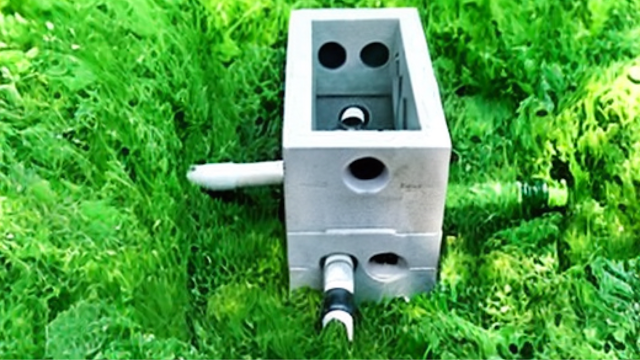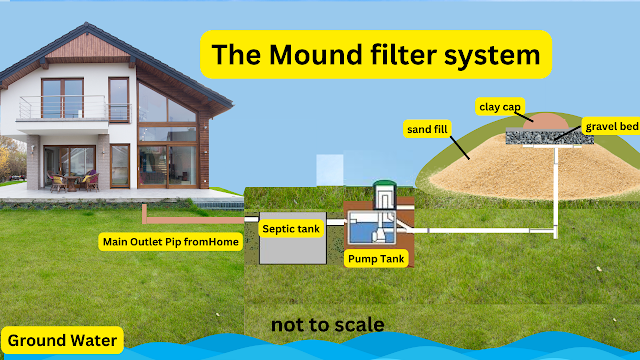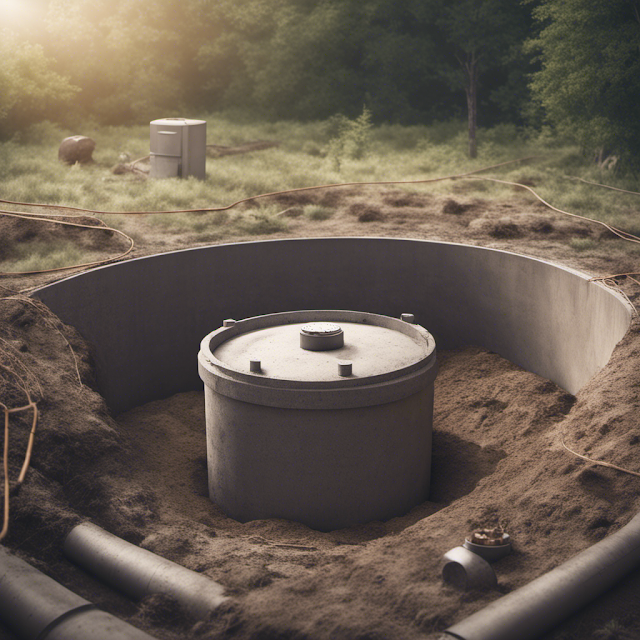Surprising Secrets Of Septic Systems: From Explosions To Toxic Gases!
 |
| Surprising Secrets Of Septic Systems: From Explosions To Toxic Gases! |
Septic systems, although often overlooked, play a crucial role in wastewater treatment. However, beneath their unassuming exteriors lie a plethora of surprising and lesser-known secrets. This article aims to delve into the mysterious world of septic systems, uncovering the hidden dangers and risks that can arise from their operation.
From the potential for explosions caused by flammable methane gas to the fatal consequences of entering an empty tank filled with toxic gases, the complexities and hazards associated with septic systems are far from ordinary. Also, the consequences of Natural Disasters such as Earthquakes cannot be ignored, just ask the folks in Alaska.
One of the most alarming secrets about septic systems is the possibility of explosions due to the presence of flammable methane gas. Methane, a byproduct of the decomposition process, can accumulate in septic tanks and pose a significant risk. The buildup of methane, combined with an ignition source such as a spark or flame, can lead to catastrophic explosions.
Additionally, septic tanks can harbor a variety of toxic gases, such as hydrogen sulfide, carbon dioxide, and ammonia. These gases can be lethal when inhaled in high concentrations, making it imperative to exercise extreme caution when working in or around septic systems.
In conclusion, septic systems hold a myriad of surprising secrets that highlight the importance of understanding and maintaining these underground wastewater treatment systems. From the potential for explosions caused by flammable methane gas to the dangers of toxic gases, the risks associated with septic systems should not be underestimated. By delving into these lesser-known facts, this article aims to shed light on the complex and often overlooked world of septic systems, emphasizing the need for regular maintenance and proper care.
Key Takeaways
- Septic systems can be dangerous due to the presence of flammable methane gas and toxic gases like hydrogen sulfide, carbon dioxide, and ammonia.
- Regular maintenance and proper care are crucial for septic systems to prevent clogs, backups, and system failure.
- Signs of septic system failure include foul odors, slow draining fixtures, sewage backups, and standing water or lush vegetation around the drain field.
- Monitoring what goes into the septic system, reducing water usage, and avoiding the use of harsh chemicals are important for the proper care of septic systems.
What Can Go Wrong?
One potential issue that can arise with septic systems is the rare but possible occurrence of septic tank explosions due to the presence of flammable methane gas, as previously mentioned.
Methane gas is a natural byproduct of the decomposition process that occurs within the septic tank. Under normal circumstances, this gas is safely vented out of the system. However, if there is a buildup of methane gas and it comes into contact with an ignition source, such as a spark or flame, it can result in a septic tank explosion.
While septic tank explosions are relatively rare, they can have serious consequences, including property damage and potential injury or even death.
Common dangers associated with septic system failure can include foul odors, slow draining fixtures, sewage backups, and the presence of standing water or lush vegetation around the drain field.
Foul odors are often the first sign of a septic system problem and can indicate a buildup of waste or a blockage in the system.
Slow draining fixtures, such as sinks or toilets, may suggest that the septic tank is full or that there is a blockage in the pipes.
Sewage backups are a more severe indication of septic system failure and can occur when the tank is not properly maintained or when there is a significant issue with the drain field.
Finally, the presence of standing water or lush vegetation around the drain field can indicate that the system is not effectively absorbing and filtering wastewater, which can lead to environmental contamination.
It is important to address these signs promptly to prevent further damage to the septic system and potential health hazards.
 |
| Surprising Secrets Of Septic Systems: From Explosions To Toxic Gases! |
Maintenance and Lifespan
Regular maintenance and proper care are essential for ensuring the longevity of septic systems. Septic systems have a lifespan of around 30 years, but this can vary depending on factors such as usage, maintenance, and the quality of the system itself.
Without regular maintenance, septic systems can become clogged, leading to backups, foul odors, and even system failure. Pumping the septic tank every 2 years may not be sufficient for proper maintenance, as it only removes the solid waste from the tank. Regular pumping, as well as inspection and maintenance of the entire system, including the drain field, is necessary to keep the septic system functioning properly.
To maintain the septic system and extend its lifespan, there are several important steps that homeowners should take. Firstly, it is crucial to monitor and control what goes into the septic system. This includes avoiding flushing non-biodegradable items such as sanitary napkins, diapers, and grease down the toilet or drains.
Additionally, reducing water usage can help prevent overloading the system. Regular inspections by a professional can identify any potential issues early on, allowing for timely repairs or adjustments. Another important aspect of maintenance is the use of biological additives. These additives help maintain a healthy bacterial balance in the septic tank, ensuring efficient decomposition of waste.
Lastly, homeowners should also be mindful of the drain field and avoid parking or driving heavy vehicles over it, as this can damage the pipes and hinder the absorption of wastewater.
By following these maintenance practices, homeowners can ensure the longevity and functionality of their septic systems.
Tips for Proper Care
Effective maintenance practices are crucial for ensuring the proper functioning and longevity of septic systems. Despite this, there are several common misconceptions surrounding the care and maintenance of these systems.
One misconception is that septic tanks do not require regular pumping and maintenance. In reality, septic tanks should be pumped every three to five years, depending on the size of the tank and the number of occupants in the house. Neglecting regular maintenance can lead to a buildup of solids in the tank, which can cause clogs, backups, and even system failure.
It is important to note that simply adding bacteria from dead animals or ground beef to the system will not help. While bacteria are essential for the breakdown of organic matter in septic tanks, they are naturally present in the system and do not need to be supplemented. Instead, homeowners should focus on proper care, such as avoiding the use of harsh chemicals and limiting excessive water usage, to maintain a healthy bacterial balance.
In addition to regular maintenance, adopting eco-friendly practices can also contribute to the proper care of septic systems. One eco-friendly practice is to conserve water. Excessive water usage can overload the septic system and lead to a higher frequency of pumping. Simple measures like fixing leaky faucets and toilets, using water-efficient appliances, and spreading out laundry and dishwasher loads can help reduce water consumption.
Another eco-friendly practice is to avoid flushing non-biodegradable items down the toilet or drains. Items such as wipes, sanitary products, and cooking grease can clog pipes and strain the septic system. Proper waste management, such as composting or disposing of non-biodegradable items in the trash, can prevent unnecessary stress on the septic system.
By adopting these common-sense practices and dispelling misconceptions, homeowners can ensure the longevity and efficiency of their septic systems.
Frequently Asked Questions
Can septic tanks explode even if they are not near a source of ignition?
Septic tanks can explode even if not near a source of ignition due to the buildup of flammable methane gas. Safety precautions such as regular maintenance, proper ventilation, and avoiding sparks or flames are necessary to minimize explosion risks.
Are there any signs or symptoms that could indicate the presence of toxic gases in a septic tank?
Warning signs of toxic gases in a septic tank include foul odors, difficulty breathing, dizziness, and headaches. These gases pose health risks such as asphyxiation and poisoning, emphasizing the importance of regular maintenance and proper ventilation.
How often should a septic tank be pumped to ensure proper maintenance and prevent any potential issues?
To ensure proper maintenance and prevent potential issues, septic tanks should be pumped every 3-5 years, depending on factors such as the tank size and household usage. Neglecting pumping can lead to common septic tank problems like backups and system failure.
Is it possible to extend the lifespan of a septic system beyond 30 years with regular maintenance?
Regular maintenance, including proper care and regular pumping every 2-3 years, can help extend the lifespan of a septic system beyond the typical 30 years. However, additional factors such as the quality of installation and usage patterns also play a role.
Are there any specific measures homeowners can take to prevent winter-related issues with their septic systems, such as freezing or snow buildup?
Preventing winter issues with septic systems can be achieved through proper insulation and installation of a heat source. Regular maintenance of septic systems, such as pumping every 2-3 years and avoiding adding non-bacterial additives, is crucial for their proper functioning.
.png)



.png)






Comments
Post a Comment